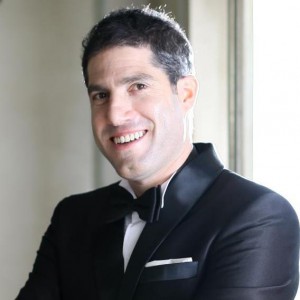국내 스타트업의 글로벌 진출이 화두입니다. 벤처스퀘어는 비욘드 시큐리티(Beyond Security)의 창업자이자 CEO로서 이스라엘 멘토로 구성된 한국 최초의 시드 펀드인 코이스라 시드 파트너스(KOISRA Seed Partners)의 이사인 아비람 제닉(Aviram Jenik)이 글로벌을 지향하는 한국 스타트업에게 전하는 칼럼을 연재한다. 국내 스타트업의 글로벌 진출에 도움이 되길 바라며, 기사 게재를 허락해 주신 아비람 제닉에게 지면을 빌어 감사 말씀 전한다. 칼럼 전체 내용은 여기를 참고바란다.
성공한 CEO들에게 그들이 내렸던 최고의 결정 5가지에 대해 물어보십시오. 그 뒤, 최악의 결정 5개를 물어보십시오. 대부분은 그들이 이뤄낸 가장 자랑스러운 성공담을 바로 기억하기 어려워할 것이지만, 저질렀던 큰 실수들에 대해서는 즉시 기억해낼 겁니다.
비즈니스의 세계에서 실수란 필수불가결의 존재입니다. 히브리어에는 이런 속담도 있습니다. “아무 것도 하지않는 자만이 그 어떤 실수도 만들지 않는다.” 물론 실수가 고통스럽지 않다는 뜻은 아닙니다. 실수를 바로 기억해내는 CEO들은 각각 실수에 대해서 그들이 얼마나 고통스러웠는 지도 얘기해줄 수 있을 겁니다. 그 실수가 어디에서 이뤄졌고, 그로 인해 어떤 느낌을 받았는 지에 대해 말이죠. 마치 피부 위에 새겨진 흉터와도 같은 존재지요. 
그런데 말이죠, 흉터 하나 없는 파이터를 믿을 수 있습니까? 아마도 아닐 겁니다. 맞는 것도 싸움의 일종인 것처럼 결정의 일부는 실수 입니다. 결정을 내리는 건 CEO들이 깨어있는 시간의 대부분 동안 하는 행위죠. 스타트업을 위한 대학이 있다면 그 곳에서 가르칠 것은 실수를 많이 겪어보도록 하는 것일 겁니다. 기업가에게 있어 경력이란 파이터의 흉터와도 같지요. (여기서 한국의 독자 분들께 알려드릴 중요한 내용이 있습니다. 널리 알려진 것과 달리 스타트업을 가르치는 대학 시설이란 존재하지 않습니다. 스타트업을 준비하는 과정을 돕는 대학교 또한 없구요. 첫 번째 학위, 두 번째 학위, 박사, MBA 또는 TLA 그 어떤 것도 스타트업과 관련하여 당신을 준비 시켜주지 않을 것 입니다. 스타트업에서의 1년은 세계 그 어떤 대학에서 보내는 10년보다도 더 가치 있는 경험이 될 것 입니다.)
여기서 문제란, 그 누구도 실수하는 걸 좋아하지 않는다는 점입니다. 경험이 많은 경영자일지라도 잘못된 결정을 내리기 싫어하지요. 스타트업이 실수를 저질렀을 때, 보통 그 실수는 아주 치명적이기도 합니다. 스타트업의 CEO가 내리는 결정은 도박꾼이 그가 가진 모든 것을 걸고 룰렛 게임에 계속해서 도전하는 꼴과 닮아 있습니다. 스스로 머리에 총구를 겨눈 채 탄창 중 하나에 총알이 채워져있음을 알고도 방아쇠를 당기는 거죠. 그래도 죽지 않았다면, 다시 당기는 식으로요.
그렇다면 어째서 스타트업 CEO들은 스스로 총구를 머리에 겨누고 쏘려는 것일까요? 올바르고 똑똑한 자라면 이 총알이 그들 스타트업을 죽일 확률이 희박하다는 것을 알기 때문입니다. 잘못된 결정을 내린다 하여 죽지는 않습니다. 오히려 올바른 결정을 빠른 시간 내에 내리지 못해 죽는 경우가 거의 항상 대부분이죠.
세계 제2차 대전 도중 미국 대통령 직을 맡았던 프랭클린 루소벨트는 “우리는 두려움 외에 그 어떤 것에도 두려워할 필요가 없다”고 말했습니다. 그 이전에도 기원전 3세기의 그리스 철학자인 제노(Zeno) 또한 ‘스토아 철학(Stoicism)’을 창시하였는데요, 이 스토아 철학자 중 가장 유명한 이는 마르쿠스 아우렐리우스였습니다. 우리에게는 영화 ‘글래디에이터’의 로마 황제로도 기억되고 있지요. 스토아 철학의 개념은 앞서 말한 루소벨트 전 대통령의 말을 확장한 버전인데요, 우리 스스로를 다치게 하는 가장 큰 이류란 바로 무언가를 잃어버리는 것이 아닌 그 것을 잃어버릴까 두려워하는 것이라는 말입니다. 좋은 스타트업 창업자들은 굉장히 스토아 철학적입니다. 그들 모두 실수를 하는 것 자체는 실수를 할까 두려워하는 것보다 덜 나쁘다는 사실을 인지하고 있지요.
스토아 철학은 이렇게 묻습니다. “일어날 수 있는 일 중 가장 최악의 것은 무엇인가”, 그리고 그 최악의 시나리오를 직접 실행해보도록 권장합니다. 만약 로마의 황제가 가장 두려워했던 것이 부(富)를 잃는 것이라면, 가난한 행색으로 며칠 또는 몇 주를 살아보게 하는 겁니다. 죽음을 두려워했다면 하루나 이틀 정도 관 속에 누워있게 하고요. 당신이 두려워했던 게 사실은 별 것이 아니라는 사실을 알게 될 때, 그 두려움은 더 이상 당신의 결정을 방해하지 않을 겁니다.
마찬가지로, 스타트업 창업자로서 스스로에게 되물어보십시오. 일어날 수 있는 최악의 상황이란 무엇인가? 결정을 내렸고, 그 결정이 잘못된 것이었다면 무엇을 잃는가? 시나리오를 짜고 모의 해본다면 상처 받은 자신을 제외하고는 그렇게 큰 일이 아니란 걸 대부분 알아차리시게 될 겁니다.
그러나 결정하지 않는다면 대가를 지불하게 될 것 입니다. 경쟁자가 먼저 제품을 내놓는다거나, 빠르게 성장하지 못한다거나, 구글이 당신 제품 영역에 발을 디디기 시작했다거나 하는 식으로 말이죠. 망해버린 스타트업의 이야기를 확인해보시면 충분히 빨리 결정을 내리지 못했던 수많은 경우들을 찾아보실 수 있을 겁니다. 그에 비해 잘못된 결정을 내려 망한 경우는 드물 게 찾아보시게 될 거구요. 즉, 룰렛을 돌리는 것으로는 치명상을 입지 않는다는 말입니다.
===
What’s the worst that can happen?
Ask a successful CEO what is their 5 best decisions. Now ask them about their 5 worst decisions.
Most CEOs will tell you: it’s not easy to immediately remember the successes they are most proud of, but they can instantly recall a very long list of huge mistakes that they’ve made.
In the business world, mistakes are an integral part. In Hebrew we have a saying: “Only the person who does not do anything does not make mistakes”. And it’s not that mistakes are not painful: the CEOs that will quickly recall the mistakes will also tell you how painful each of them was. They will remember where they were and how they felt when they realized the decision was a mistake. They are like scars on the skin.
But would you trust a fighter that has no scars? Probably not. Getting hit is a part of fighting and making mistakes is a part of decision making. And decisions is what a CEO does for most of his or her waking hours. In fact, if there were a university for startups, all they would do in that university is have you make lots of mistakes; what makes an entrepreneur “experience” is those fighting scars: the mistakes. (Important note to my Korean readers: contrary to popular Korean belief, there are no universities for startups, and no university currently exists that can prepare you for a startup. First degree, second degree, PHD, MBA or another TLA – none of these will prepare you even a little bit. One year in a startup will be more than 10 years in any university when it comes to startup readiness).
The problem is: no one likes making mistakes. Even the most experienced executive hates to make a decision that may prove to be wrong. When startups make mistakes, the mistakes are often fatal. A startup CEO making decisions is a lot like a gambler betting all his winnings on the roulette wheel again and again. And that roulette is often more like Russian roulette; you aim a gun to your head knowing one of the chambers is loaded with a bullet, and then pull the trigger. If you didn’t die from the bullet, you get to do it again.
Why do startup CEOs knowingly put a gun against their head and pull the trigger? It’s because the good ones, the experience ones and the smart ones, all know that bullets rarely kill startups; Startups rarely die for making the wrong decision. They almost always die from not making the right decision, fast enough.
Franklin Roosevelt, the famous World War II American president said: “We have nothing to fear, but fear itself”. But he wasn’t the first; Zeno, a greek philosopher living in the 3rd century BC founded a belief system called “Stoicism”. One of the most famous Stoics was Marcus Aurelius – a Roman emperor mostly remembered from the “Gladiator” movie. The idea of Stoicism is an expanded version of Franklin Roosevelt’s statement: what hurts us the most is not losing something, but rather the fear of losing it. Good startup founders are very stoic: they understand that making the mistake is not as bad as the fear of making the mistake.
Stoicism asks: “what’s the worst that can possibly happen” and then encourages you to live that scenario. If a Roman emperor most feared losing is wealth, he would go and live as a poor man for a few days or weeks. If he feared death, he would lie in a tomb for a day or two. When you see what you feared the most is not such a big deal, the fear no longer cripples your judgement.
Likewise, as a startup, ask yourself: what is the worst that can happen. If you make a decision, and it turns out to be the bad one: what will you lose? Play out the scenario and you will see that often, except for bruised ego, it’s not a big deal.
However, not making the decision will cost you: Your competitor will launch first; you won’t grow quick enough; Google will decide to move into your space. If you check the stories of startups that died you will see many such cases of not making the decision fast enough. You will see few stories of making the wrong decision. In other words – the Russian roulettes doesn’t have fatal bullets.
글 : 아비람 제닉(Aviram Jenik)

You must be logged in to post a comment.